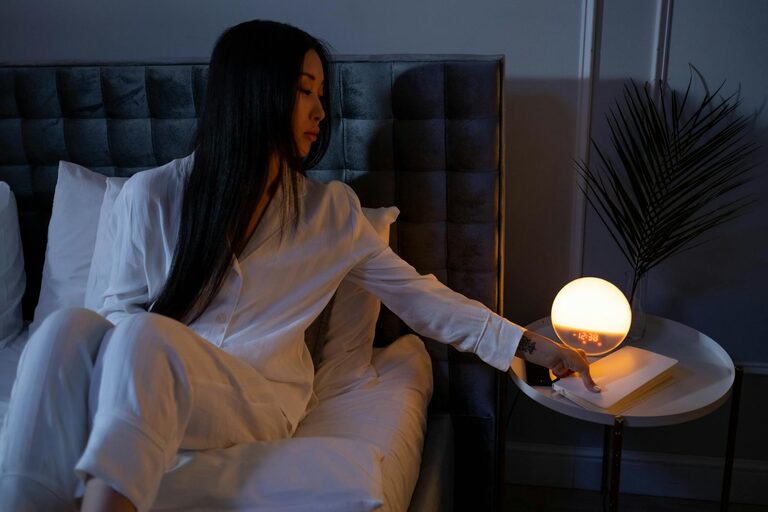Getting a good night’s sleep is essential for overall health and well-being. One of the best ways to ensure restful sleep is by establishing a relaxing bedtime routine. A consistent routine signals your body that it’s time to wind down, making it easier to fall asleep and stay asleep throughout the night. In this post, we’ll explore practical tips and simple steps to create a soothing evening ritual that prepares you for peaceful rest.
Why a Bedtime Routine Matters
Our bodies thrive on consistency. When we follow a regular pattern before bed, we help regulate our internal clock, known as the circadian rhythm. This internal clock controls sleep and wakefulness. A calming routine lowers stress hormones and promotes the release of melatonin—the hormone that makes us feel sleepy.
With a structured routine, you reduce the mental clutter that often keeps us awake, making it easier to relax and transition into sleep. It also helps separate your bedroom environment as a place for rest, which is good for sleep quality.
Steps to Create Your Relaxing Bedtime Routine
1. Set a Consistent Bedtime
Aim to go to bed at the same time every night, including weekends. Consistency strengthens your body’s sleep-wake cycle, making falling asleep more natural. Choose a time that allows for 7–9 hours of sleep based on your daily schedule.
2. Dim the Lights and Reduce Screen Time
About an hour before bed, start dimming the lights around you. Bright light signals your brain to stay awake, so lowering light exposure encourages melatonin production. It’s also wise to avoid screens like phones, tablets, and computers before bed since the blue light they emit can interfere with your ability to fall asleep.
3. Engage in Relaxing Activities
Replace screen time with calming activities that help you unwind. Some options include:
– Reading a physical book or magazine
– Listening to soothing music or nature sounds
– Practicing gentle stretches or yoga
– Journaling your thoughts or gratitude
Find what feels restful for you and make it a habit.
4. Create a Comfortable Sleep Environment
Make your bedroom a sanctuary for rest:
– Keep the room cool—around 65°F (18°C) is ideal for most people
– Use blackout curtains or an eye mask to block light
– Minimize noise or try white noise machines or fans
– Choose comfortable bedding and pillows
A setting that feels cozy and quiet supports relaxation.
5. Practice Mindfulness or Meditation
Mindful breathing exercises or guided meditation can calm a busy mind and prepare it for sleep. Try focusing on inhaling deeply through your nose, holding briefly, and exhaling slowly through your mouth. Apps or online videos can provide gentle guidance if you’re new to meditation.
6. Limit Caffeine and Heavy Meals Before Bed
Caffeine can stay in your system for several hours and might disrupt sleep if taken too late. It’s best to avoid coffee, tea, or energy drinks after mid-afternoon. Similarly, heavy or spicy meals close to bedtime may cause discomfort, so keep evening snacks light and avoid eating at least 2-3 hours before sleep.
7. Establish a Pre-Bedtime Personal Care Routine
Taking a warm bath or shower, brushing your teeth, and washing your face can all become soothing rituals. The warmth of a bath can relax muscles, while personal care signals your brain that it’s time to wind down.
Sample Relaxing Bedtime Routine
Here’s an example of how these elements might come together in a simple nightly schedule:
– 9:00 pm: Turn off screens and dim the lights
– 9:10 pm: Read a few chapters of a book or listen to calming music
– 9:30 pm: Gentle stretching or a 5-minute meditation session
– 9:40 pm: Warm bath or shower followed by skincare routine
– 10:00 pm: Lights out and get ready for sleep
Adjust the times to fit your lifestyle, but try to stick to the pattern each night.
Tips for Staying Consistent
– Set a reminder on your phone to start your routine
– Keep all your bedtime items (books, pajamas, skincare) organized and easily accessible
– Share your routine with a family member or friend as accountability
– Be patient—your body might take a few weeks to adjust
When to Seek Help
If you consistently struggle with falling asleep or staying asleep despite a good routine, it might be worth discussing with a healthcare professional. Sleep disorders or underlying health conditions can affect sleep quality and may require tailored treatment.
—
Creating a relaxing bedtime routine is a wonderful way to wind down after a busy day and improve your sleep quality. With a little planning and consistency, you can enjoy calmer evenings and wake up feeling refreshed and ready to tackle the day. Sweet dreams!

